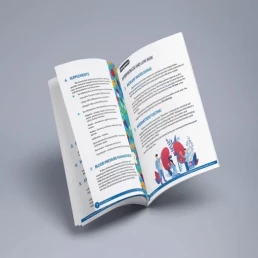As we delve deep into countless medical journals to uncover the latest on Integrative Medicine’s approach to kidney health, we are always reminded of the value of your time. Our commitment remains steadfast in curating and succinctly summarizing these vital studies for you. Welcome to the February Research and News.
Self-Reported Frequency of Adding Salt to Food and Risk of Incident Chronic Kidney Disease
In a comprehensive cohort study leveraging UK Biobank data, researchers investigated the potential link between the self-reported frequency of adding salt to foods and the risk of developing chronic kidney disease (CKD) among adults.
This population-based research tracked participants aged 37 to 73 years, free from CKD at the start, from 2006 to 2010, with follow-up for disease diagnosis extending into April 2023.
Participants’ salt-adding habits were categorized into four groups: never or rarely, sometimes, usually, and always. The study aimed to discern if these self-reported habits correlated with an increased incidence of CKD, adjusting for a wide range of potential confounders like demographic factors, health status, and lifestyle choices.
Over the median follow-up of 11.8 years among 465,288 individuals, those with a higher frequency of adding salt reported at baseline showed a statistically significant increase in CKD risk, adjusted for various health and lifestyle factors.
Notably, the risk of CKD incrementally rose with the frequency of adding salt to food, with those always adding salt at the table showing the highest risk. Additionally, the associations were more pronounced among participants with a higher estimated glomerular filtration rate (eGFR), lower body mass index (BMI), or lower physical activity levels.
Why this is important
This study underscores the potential public health impact of seemingly benign dietary habits, such as adding salt to foods, on the risk of developing chronic kidney disease. By establishing a link between higher self-reported salt addition and increased CKD risk, the findings advocate for dietary modifications as a preventive measure against CKD in the general population.
Reducing the frequency of adding salt at the table could serve as a simple yet effective strategy to mitigate CKD risk, particularly highlighting the importance of dietary interventions alongside other lifestyle modifications to preserve kidney health.
But the risk probably extends beyond added salt to ultra-processed foods that often contain high amounts of salt.
Join us to end the kidney disease epidemic
Social Isolation and Loneliness Increase the Risk of Acute Kidney Injury in Adults
In a prospective cohort study utilizing the UK Biobank data, investigators explored the impact of social isolation and loneliness on the risk of developing acute kidney injury (AKI) among middle-aged and older adults.
Including 450,868 participants without prior AKI, the study constructed a social isolation index based on living conditions, frequency of social contacts, and participation in social activities. Loneliness was evaluated through self-reports.
Over a median follow-up of 12 years, 18,679 participants (4.1%) developed AKI, with the majority of cases identified through hospital admission records. The study found that social isolation significantly increased the risk of AKI, with a hazard ratio of 1.50 in minimally adjusted models and 1.10 in fully adjusted models that accounted for a comprehensive range of factors, including socioeconomic status, health behaviors, and psychological factors.
Similarly, loneliness was associated with a higher risk of AKI, with hazard ratios of 1.57 in minimally adjusted models and 1.10 in fully adjusted models. Notably, the highest risk of AKI was observed in individuals experiencing both social isolation and loneliness, with specific factors such as living alone and limited social contact being significant predictors of AKI risk.
Why this is important
This study highlights the significant and independent associations between social isolation, loneliness, and the risk of AKI, underscoring the broader health implications of social determinants.
Understanding that social isolation and loneliness can contribute to the risk of serious health conditions like AKI emphasizes the need for healthcare providers and policymakers to consider social factors in preventative health strategies.
These findings advocate for interventions aimed at enhancing social connections and addressing loneliness as potential measures to reduce AKI risk, illustrating the interconnectedness of social well-being and physical health.
Impact of Potassium Citrate Treatment Differs Depending on Type of Calcium Stone
In a detailed analysis, researchers investigated how common treatments for calcium stones—specifically thiazide diuretics and potassium citrate (K-Cit)—affect patients with calcium oxalate (CaOx) and calcium phosphate (CaP) stones.
The study assessed the impact of these treatments by examining changes in 24-hour urine compositions across four treatment groups: Lifestyle changes, K-Cit, Thiazide, or a combination of Both medications.
The findings revealed that thiazide treatment effectively reduced urine calcium levels in both CaOx and CaP stone formers, while K-Cit did not significantly alter urine calcium.
In CaOx stone formers, urine citrate levels increased with K-Cit treatment, a response not mirrored in CaP stone formers. Interestingly, urine pH increased in all CaOx stone formers but only in CaP stone formers treated with K-Cit.
Supersaturation (SS) levels for CaOx decreased in patients treated with either Thiazide or K-Cit, while CaP SS decreased in both stone groups treated with Thiazide but not in CaOx stone formers treated with both medications. K-Cit treatment alone led to an increase in CaP SS in CaOx stone formers.
Why this is important
This study highlights the differential impacts of thiazide diuretics and potassium citrate on urine stone risk factors in calcium oxalate versus calcium phosphate stone formers. While Thiazide universally lowers urine calcium and stone risk for both types of stone formers, potassium citrate benefits appear more limited to CaOX stone formers.
These findings underscore the need for tailored medical approaches in managing calcium stone diseases, suggesting that the effectiveness of K-Cit in preventing stone recurrence may vary significantly between CaOx and CaP stone formers. This insight is crucial for clinicians in optimizing treatment strategies and improving outcomes for patients with these common types of kidney stones.
The Type of Plant-Based Diets Matters When it Comes to Mortality and CKD Progression Risk
In a prospective analysis within the Chronic Renal Insufficiency Cohort (CRIC) Study, investigators explored how adherence to plant-based diets impacts the progression of chronic kidney disease (CKD) and all-cause mortality among CKD patients.
The study, involving 2,539 CKD participants enrolled from 2003 to 2008, utilized dietary responses to calculate adherence scores to “overall,” “healthy,” and “unhealthy” plant-based diet indices.
What defined a healthy and unhealthy plant-based diet in the study?
Their scoring index defined a healthy plant-based diet as a diet containing whole grains, fruits, veggies, nuts, legumes, tea, and coffee. An unhealthy plant-based diet contains refined grains, potatoes, fruit juices, sweetened beverages, sweets, and desserts. You can check it out here.
Results over median follow-up periods of 7 and 12 years for CKD progression and mortality, respectively, revealed that higher adherence to overall and healthy plant-based diets significantly reduced all-cause mortality risk by 26% and 21%.
Conversely, a 10-point increase in the score for unhealthy plant-based diets modestly heightened the risk for both CKD progression and all-cause mortality.
Why this is important
These findings underscore the potential benefits of plant-based diets in managing the progression of CKD and reducing mortality risk. Highlighting the distinction between healthy and unhealthy plant-based diets, this study advocates for dietary guidance focused on nutritious plant foods versus processed plant foods for CKD patients.
By demonstrating a clear link between diet quality and health outcomes in CKD, this research provides a strong foundation for dietary recommendations to improve long-term health and survival in this population.
Review article of the month
The Role of Inflammation in Salt-Sensitive Hypertension
Salt sensitivity of blood pressure (SSBP) stands as an independent risk factor for cardiovascular diseases. The epithelial sodium channel (ENaC) is pivotal in regulating renal electrolytes and fluid balance and is involved in developing SSBP. This review highlights the latest findings on how ENaC-related inflammation contributes to the onset of SSBP.
You can download the full PDF here.
Join here to receive FREE monthly updates on the latest research in Integrative Nephrology and tips on managing kidney disease straight to your inbox.
We would love to hear your feedback. Let us know what you think of these educational materials and if you like us to focus on specific topics. Please email us at info@inkidney.com.







